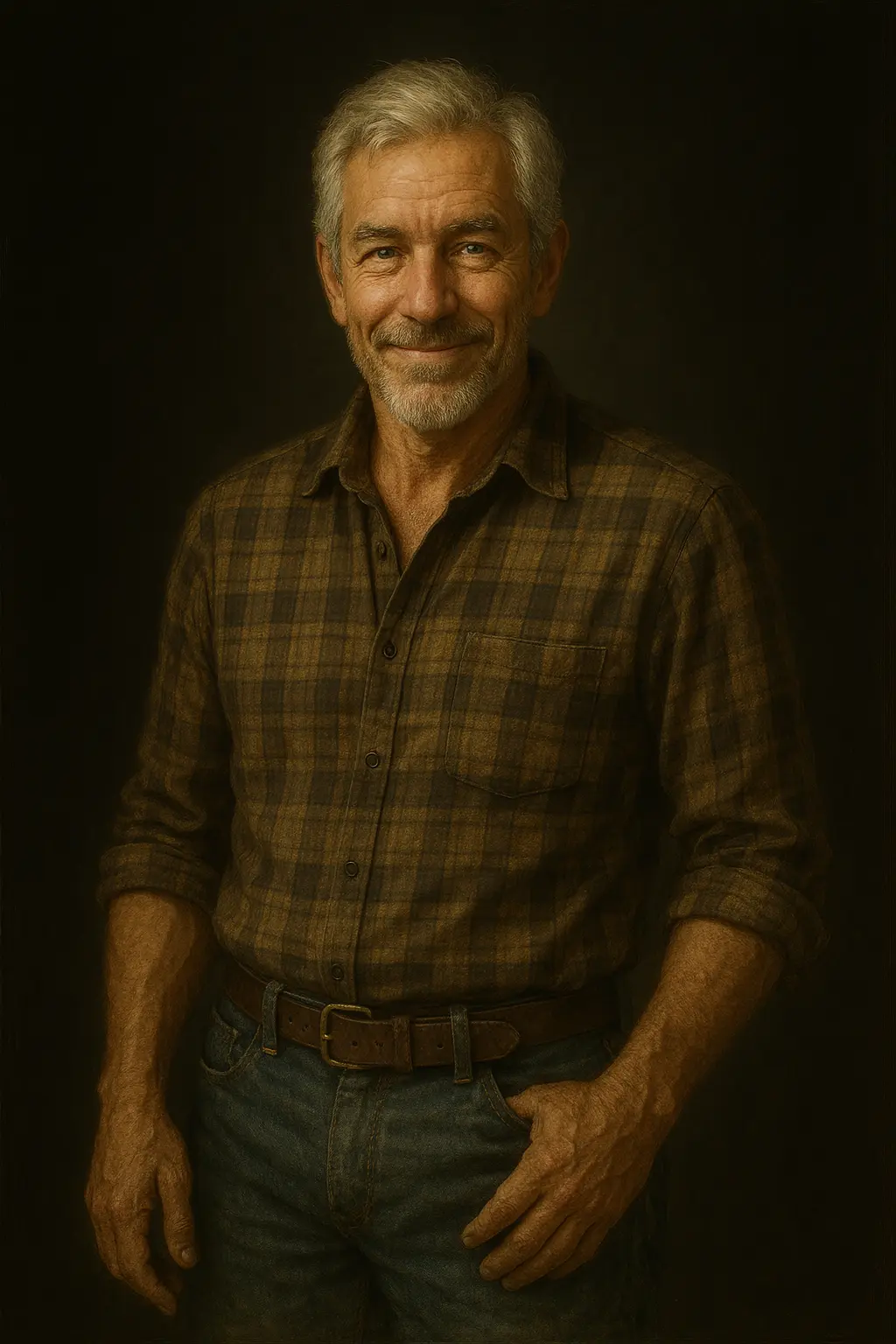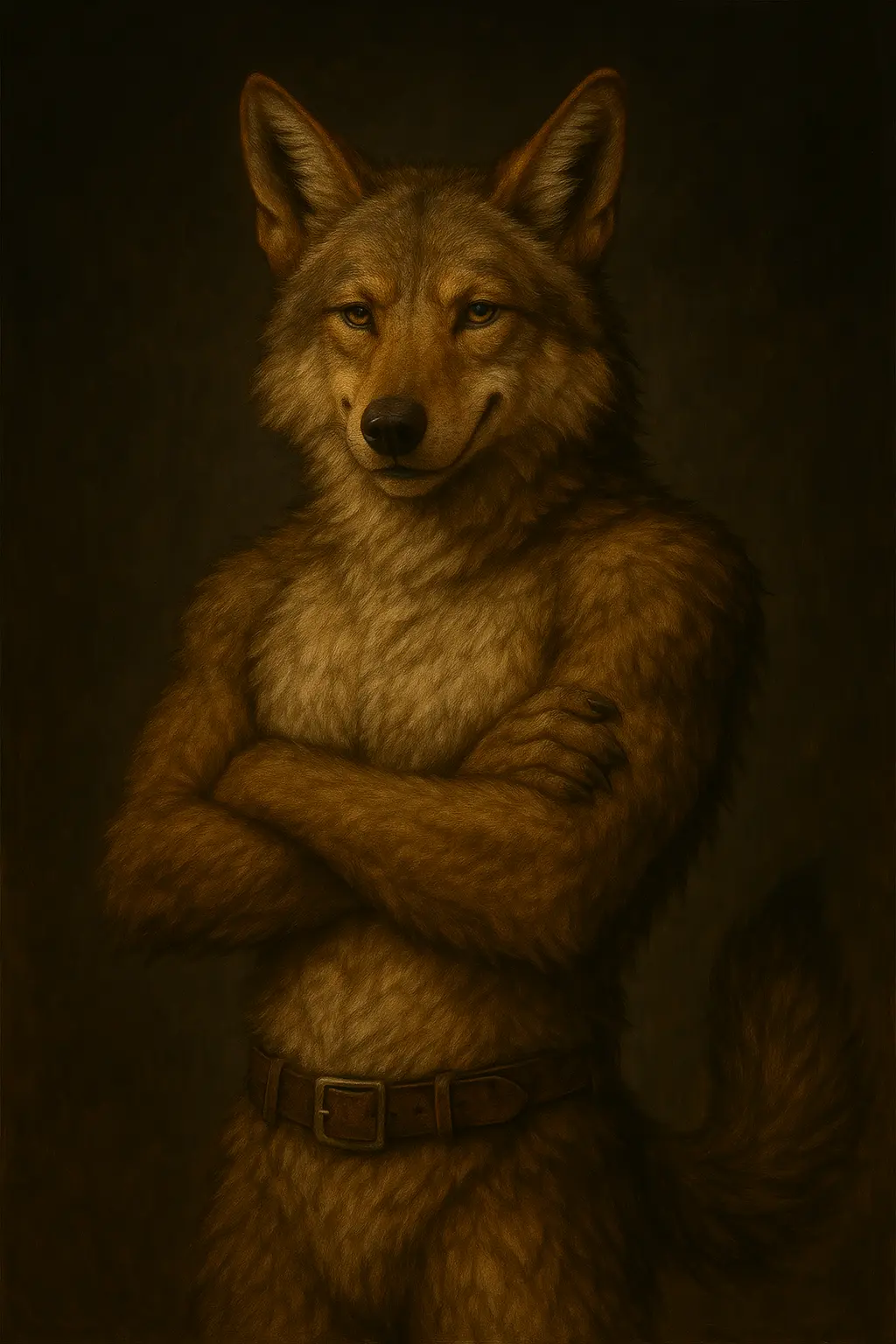
Alton “Dogbone” Henry
Nuwisha Elder | City Watcher
Nobody knows when Dogbone actually got here. Some say he wandered in after the '89 quake. Others swear they've seen him in grainy Polaroids from the '50s, always in the background—smirking like he knows how the photo ends. What they agree on is that he doesn't age like most people do. His body may wear the years, but his spirit's as sharp and chaotic as it ever was.
He walks like a man who's spent a long time walking. White hair kept just neat enough to annoy people who expect the unkempt. Eyes too green to be safe. His face holds the lines of someone who's seen too much and laughed at most of it anyway. You'll usually find him dressed like a vagabond from three different decades at once, boots scuffed to hell, and something clever already halfway to his tongue.
Dogbone is a Nuwisha, a werecoyote of the Old Trickster's blood, though he rarely volunteers the title unless he's using it to win an argument. He's a Watcher, one of the unofficial pair responsible for observing Oklahoma City's supernatural tapestry—looking for patterns, tears, or signs that the weave is about to come undone. The other Watcher, Thaddeus Garrett, may be the academic, but Dogbone's the one who stares too long at the sky and still knows what's coming.
He doesn't teach, but everyone learns something when Dogbone's around. Sometimes it's a lesson you asked for. Most of the time, it's not. His wisdom is buried under sarcasm, pranks, beer cans, and the ability to vanish mid-conversation. But make no mistake—he's always watching.
He's known to cross into the Umbra as casually as stepping off a porch. Some say he prefers it there, where the rules bend and meaning hides in sideways glances. He's especially tuned to the Wyrm's stink when it starts creeping through the cracks. When he shows up unannounced, laughing at something he hasn't said yet, it usually means trouble's already been invited in.
And still, somehow, he's kind. Not soft. But kind.
If you've been broken by the world and think you've got no way back, Dogbone will sit beside you, insult your taste in shoes, and quietly point you in the right direction. That's the trick with old coyotes—they don't give you the answer. They remind you how to ask the right question.
Just don't call him “Alton.” He hates that.

The Coyote Who Walks Between Worlds
Dogbone's Manabozho form is not Crinos—not in the way the Garou know it.
It is tall, but not imposing; lanky, but not awkward. His arms stretch like branches, and his limbs bend a little too much, like he was put together by memory rather than anatomy. His fur is a patchwork of gray, rust, and moon-silver, and his eyes are old as the Red Earth—not glowing, not furious, just aware.
In this form, his voice echoes—not louder, but deeper, like something heard across water. He moves like a ripple through tall grass—almost slow, always deliberate, and never once where you expect him to be. He laughs with his teeth, and his shadow does not always follow his body.
He doesn't tear foes apart. He unravels them—through riddles, misdirection, illusions, and stories that dig under their skin until they forget why they were angry in the first place. When he strikes, it's like a fable closing on its final line: inevitable and unexpected.
Spirits bow to this form. Not in reverence, but in acknowledgment—because in Manabozho, Dogbone isn't just a Nuwisha. He is the memory of why coyote spirits still dance, even when the world is on fire.
To the untrained eye, he might look fragile, old, even comical. That's how he wants it. But if you see him in Manabozho and he looks serious—you've already lost.
Storyteller Perspective
Alton “Dogbone” Henry doesn't arrive. He appears—like he was always there, just waiting for the story to catch up.
He speaks like a man who knows too much and remembers even more. His voice is calm, with the occasional bite of dryness—sarcastic, never cruel. He talks to people the way coyotes talk to fire: respectful but familiar. He's got jokes, yes. But they're usually barbed, and often the setup is buried so deep you only catch the punchline an hour later, usually when it hurts the most.
When playing Dogbone, never give a straight answer first. Circle around it. Offer a story, a proverb, a contradiction. If the players are patient, he'll get to the point—but the point will never be all of it.
He rarely shows anger. If he goes quiet, truly quiet, it means something's deeply wrong. If he walks away mid-conversation, it's not dismissal—it's a test.
Dogbone doesn't care about hierarchy, packs, or righteousness. He cares about the balance of things, about spiritual integrity, and about whether the land remembers your footprints. He won't start a fight, but he'll finish one. If a spirit or a Garou gets too big for their claws, he's been known to knock them down with nothing more than a look, a laugh, and a few well-placed words that sting worse than silver.
He doesn't lead, but people follow. He doesn't command, but his presence changes the shape of a scene. When Dogbone is near, the Umbra hums differently—like a trick of the wind, or a story trying to remember itself.